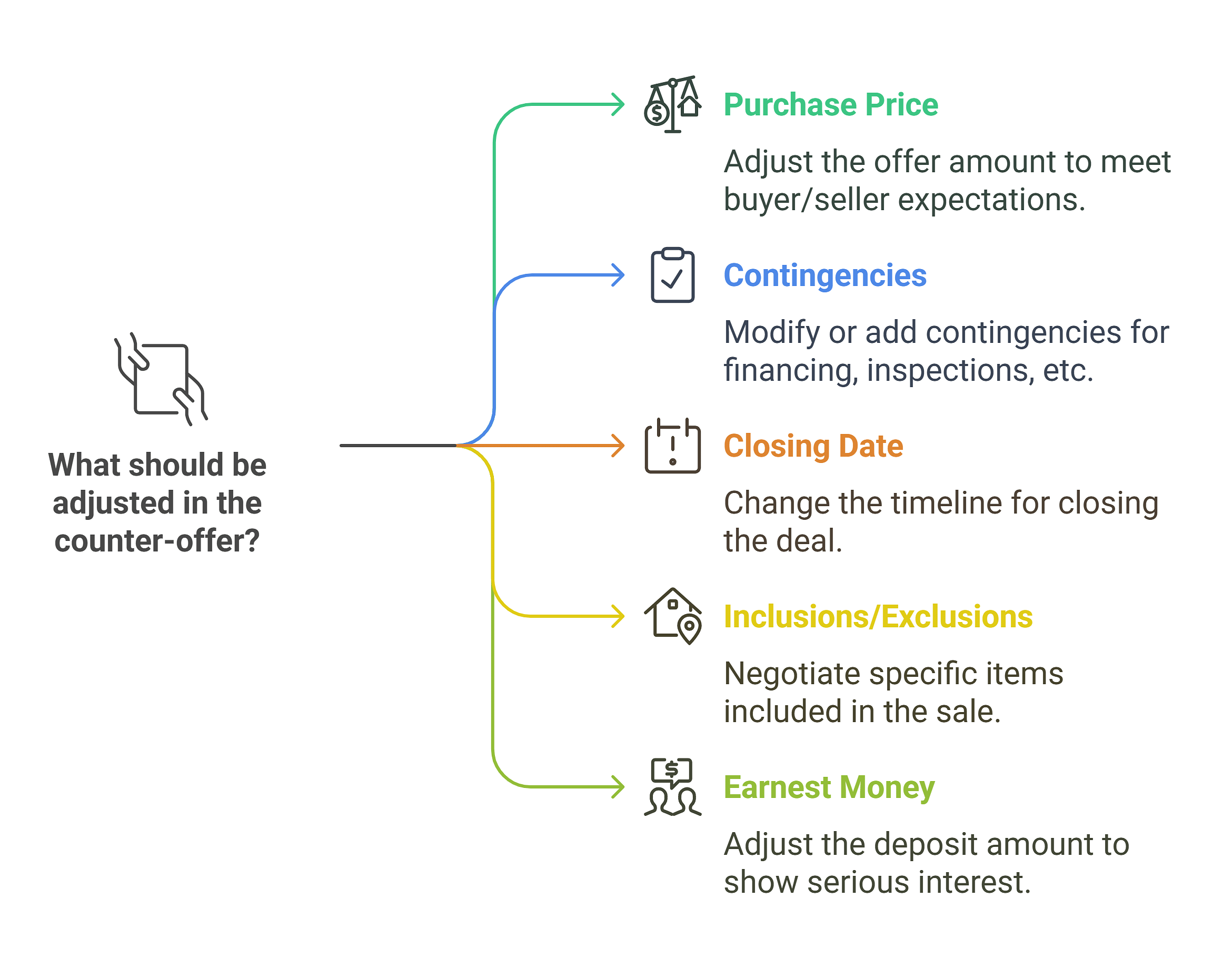What Is A Counter-Offer?

Buying or selling a home is one of the biggest financial decisions most people make in their lifetime, and it often involves more than just accepting or declining an offer. One of the most common steps in a real estate negotiation is the counter-offer. But what exactly is it, and how does it shape the transaction?
At Crescent Title, we help buyers, sellers, and agents navigate every phase of a real estate deal, including the back-and-forth that happens before the dotted line is signed. Let’s break down what a counter-offer is, when it happens, and what to expect.
What Is a Counter-Offer?
A counter-offer is a formal response to an initial purchase offer in a real estate transaction. Instead of accepting the original offer as-is, the seller (or in some cases, the buyer) proposes new terms. The counter-offer replaces the original offer and reopens negotiations between the two parties.
In Louisiana real estate, counter-offers must be in writing and are legally binding once accepted and signed. This step in the process is your opportunity to adjust terms that don’t quite fit your needs, while still moving the deal forward.
Common Reasons for Making a Counter-Offer

Every real estate deal is different, but here are a few typical reasons someone might submit a counter-offer:
- Purchase Price: The most common change is adjusting the offer amount. A seller might want a higher price, while a buyer might respond with a lower bid.
- Contingencies: These can include financing, home inspections, appraisal results, or the sale of another property.
- Closing Date: One party may want to speed up or delay the timeline.
- Inclusions and Exclusions: Items like appliances, window treatments, or light fixtures may be negotiated.
- Earnest Money: The amount put down to show serious interest can be increased or decreased as part of negotiations.
How a Counter-Offer Works
Once the initial offer is received, the recipient has three options: accept, reject, or counter. If a counter-offer is made, the original offer is void.
Here’s how the process typically unfolds:
1. The party receiving the offer makes changes and submits the new terms in writing.
2. The other party then has the same options: accept, reject, or counter again.
3. This cycle can continue until both sides agree—or the negotiations fall through.
In Louisiana, real estate contracts and counter-offers must follow specific legal requirements, which is why having a knowledgeable team like Crescent Title is essential.
What Happens After a Counter-Offer?

After a counter-offer is submitted, time is of the essence. Offers often come with an expiration date, and waiting too long to respond could cost you the deal.
If the other party accepts, the counter-offer becomes the new agreement. If they reject or submit another counter, negotiations continue. Multiple rounds of counter-offers aren’t uncommon, especially in competitive markets.
Tips for Navigating Counter-Offers
Whether you’re buying your first home or selling a longtime property, here are a few tips to help you stay focused during negotiations:
- Set Clear Goals: Know what you want to get out of the deal and where you’re willing to compromise.
- Communicate Through Professionals: Rely on your real estate agent to negotiate clearly and professionally on your behalf.
- Understand the Market: Be realistic about your expectations based on comparable homes in your area.
- Don’t Let Emotions Take Over: Stay focused on your end goal: a successful closing.
Close With Confidence and Let Crescent Title Help
Every real estate deal has its own twists and turns. Whether you’re responding to an offer or preparing to make a counter, Crescent Title is here to ensure every document is accurate, legal, and aligned with your interests. Our experienced team guides you through each step of the transaction so you can contact us and move forward with clarity and confidence.
Frequently Asked Questions (FAQs)
1. Can a seller withdraw a counter-offer after making it?
Yes, a seller can withdraw a counter-offer at any time before the buyer accepts it in writing.
2. How long does a buyer have to respond to a counter-offer?
Typically, the deadline is set within the counter-offer itself—often 24 to 72 hours—depending on market conditions and urgency.
3. Can multiple counter-offers be made at the same time?
Yes, but it can get legally complex; sellers should include a disclosure that no counter-offer is binding until formally accepted.
4. Is a verbal counter-offer legally binding in Louisiana?
No, all counter-offers must be in writing and signed by both parties to be legally enforceable in Louisiana real estate transactions.

